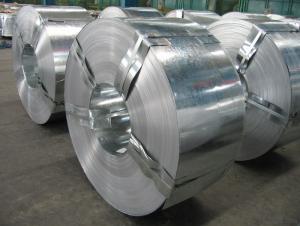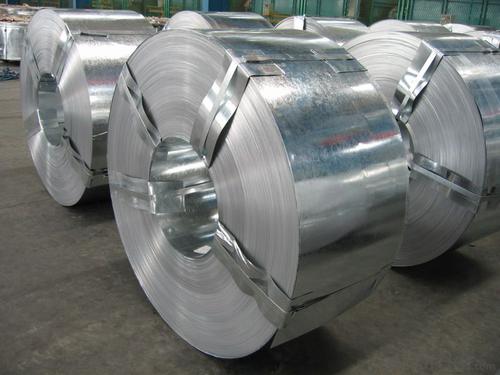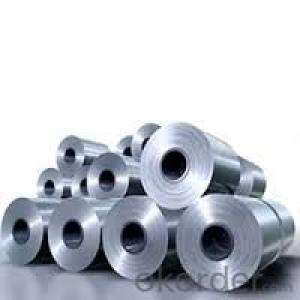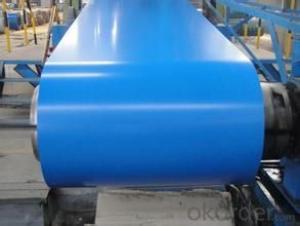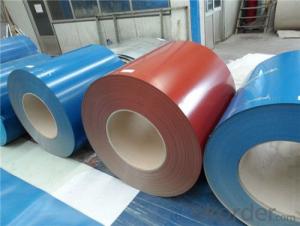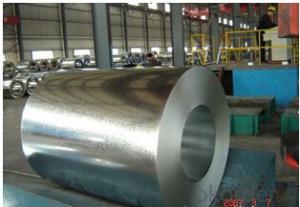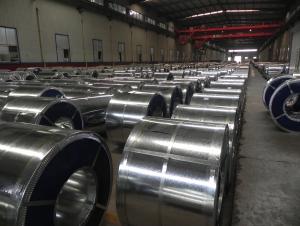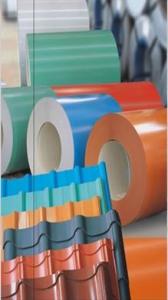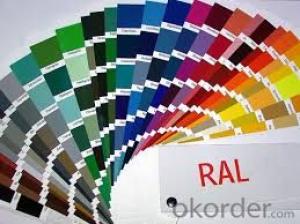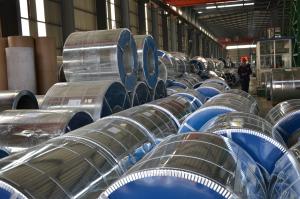Galvanized Steel Coil 0.2mm-0.8mm Color Coated in China
- Loading Port:
- China main port
- Payment Terms:
- TT OR LC
- Min Order Qty:
- 10 m.t.
- Supply Capability:
- 10000000 m.t./month
OKorder Service Pledge
OKorder Financial Service
You Might Also Like
1.Description of Galvanized Steel Coil 0.2mm-0.8mm Color Coated:
1).Construction: roof structure, doors, kiosks, shutters, guard the door, waiting rooms in streets , ventilation, etc.
2).Electrical appliances: refrigerators, air conditioner, electronic oven, washing machine shell, oil furnace, etc.
3).Transportation: auto ceilings, backplane, surround board, car shell, tractors, ships bulkhead, et
2.Operation Procedure of Galvanized Steel Coil 0.2mm-0.8mm Color Coated:
A.Color coated operation process flow diagram
Pay off reel → double cut shear → welder-notcher → entry accumulator → pre cleaning section → furnace → hot bridle → zinc pot → air knife → after cooler → water quench → dryer → skin pass mill → dryer → tension leveler → dryer → chemical coater → chemical oven → cooler → exit accumulator → oiler → exit shear → tension reel
B.Hot dip galvanized operation process flow diagram
Black part inspection → bridging → degrease → rinsing → pickling → cleaning → plating assistant dipping → dry by hot air→ HDG → cooling → passivation & rinsing → unloading → inspection and repair → packing and transport
3.Galvanized Steel Coil 0.2mm-0.8mm Color Coated Images:
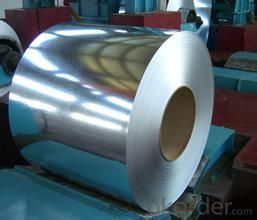
4.Galvanized Steel Coil 0.2mm-0.8mm Color Coated Specification:
Product | SPCC JIS G3101 prepainted galvanized steel coils/color coated steelcoils/ppgi coil made in china for construction | ||
Thickness | 0.12mm-1.2mm | ||
Width | 914-1250mm | ||
Tolerance | Thickness:±0.02mm Width: ±2mm | ||
Single weight | 3-8Tons | ||
Standard | JIS G3302, JISG3101,ASTM A653,DIN EN 10327, GB/T2518-2004 etc. | ||
Steel grades | SPCC,SGCC, CGCC DX51D+Z, DX52D+Z, SECC, ST02Z etc. | ||
Technique | Cold rolled | ||
Surface finished | Coated&galvanized | ||
Zinc-coating | 40g/m2-200g/m2 | ||
Paingting thickness | Top:15-25mic | ||
Bottom:5-7mic | |||
Painting structure | Top side | Bottom side | |
Primer | Back coating | 1/1 | |
Primer and top coating | Primer or single back coating | 2/1 | |
Primer and top coating | Primer and finish back coating | 2/2 | |
Coil Diameter | 508mm | ||
5.PACKING:
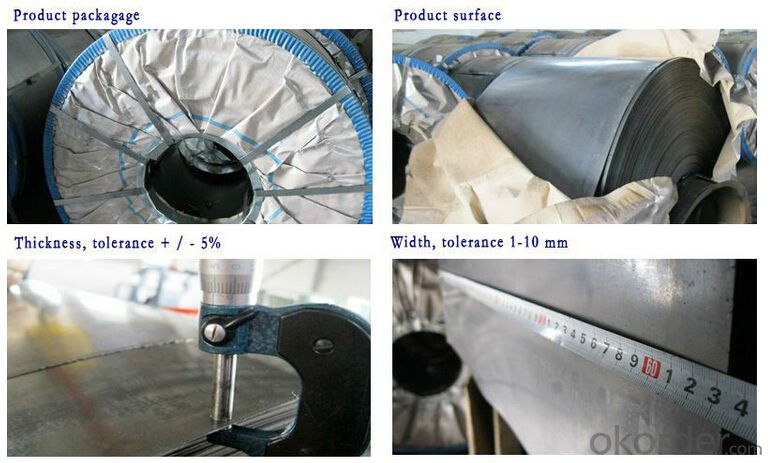
6.FAQ
We have organized several common questions for our clients,may help you sincerely:
①How about your company?
A world class manufacturer & supplier of castings forging in carbon steel and alloy steel,is one of the large-scale professional investment casting production bases in China,consisting of both casting foundry forging and machining factory. Annually more than 8000 tons Precision casting and forging parts are exported to markets in Europe,America and Japan. OEM casting and forging service available according to customer’s requirement.
②How to guarantee the quality of the products?
We have established the international advanced quality management system,every link from raw material to final product we have strict quality test;We resolutely put an end to unqualified products flowing into the market. At the same time, we will provide necessary follow-up service assurance.
③How long can we receive the product after purchase?
In the purchase of product within three working days, We will arrange the factory delivery as soon as possible. The pecific time of receiving is related to the state and position of customers.Commonly 7 to 10 working days can be served.
- Q: What are the factors affecting the strength of steel coils?
- The strength of steel coils can be influenced by several factors. These include the grade of steel used, the manufacturing process employed, the thickness and width of the coils, the quality of their surface, how they are stored and handled, and the environmental conditions they are exposed to. When choosing and using steel coils, it is crucial to take these factors into account to ensure that they meet the necessary strength requirements for their intended use.
- Q: What are the different methods of cutting steel coils?
- There are several methods of cutting steel coils, including shearing, slitting, laser cutting, and plasma cutting. Shearing involves using a straight blade to cut through the coil, while slitting involves multiple circular blades that create narrower strips. Laser cutting uses a high-powered laser beam to melt and vaporize the steel, resulting in precise cuts. Plasma cutting uses a high-velocity jet of ionized gas to melt and blow away the steel, allowing for fast and accurate cuts.
- Q: How are steel coils used in the manufacturing of engine mounts?
- Steel coils are commonly used in the manufacturing of engine mounts to provide durability, strength, and flexibility. These coils are typically designed to absorb and dampen vibrations, shocks, and movements generated by the engine during its operation. By integrating steel coils into the engine mount design, manufacturers can ensure better stability, improved performance, and reduced noise levels in vehicles.
- Q: I looking at replacing a few of the panels on my car with either Carbon Fiber or High Tensile Steel to shave off some weight and increase mpg and take some time off my quarter mile. Which is better: Carbon Fiber or High Tensile Steel?
- Because no matter how hard the helmet is it can not prevent brain damage from your brain slapping the inside of your skull. If the helmet was able to absorb the energy from an impact and prevent you brain from moving inside your skull it would have to be huge and everyone would look like bubble heads riding on bikes. The sides would have to be around 12 inches thick on each side and top to provide that much protection and would probably break your neck if you were in a wreck. Hope I have been helpful.
- Q: How are steel coils used in the manufacturing of construction formwork?
- Steel coils are used in the manufacturing of construction formwork to provide structural support and reinforcement. These coils are typically processed and formed into various shapes and sizes, which are then used as a framework or mold for pouring concrete. The strength and durability of steel coils make them ideal for withstanding the weight and pressure of the poured concrete, ensuring the stability and integrity of the formwork structure.
- Q: What is the role of steel coils in the production of industrial machinery?
- Steel coils play a crucial role in the production of industrial machinery as they are used as raw material for manufacturing various components and parts. These coils are typically cut, shaped, and formed into desired shapes and sizes to create structural frames, panels, gears, shafts, and other vital elements of machinery. The high strength and durability of steel make it an ideal choice for withstanding heavy loads, vibrations, and harsh operating conditions, ensuring the reliability and longevity of industrial machinery.
- Q: Is 440 steel relatively strong or weak?
- Its strong steel is rated by the precence of carbon in it. Higher carbon _ higher the price
- Q: What are the common quality issues with steel coils?
- Some common quality issues with steel coils include: 1. Surface defects: Steel coils may have surface defects such as scratches, pits, or rust spots. These defects can affect the appearance and smoothness of the final product and may also impact its performance. 2. Dimensional variations: Steel coils may exhibit dimensional variations, such as thickness variations, width variations, or length variations. These variations can lead to difficulties in processing the steel and may result in inconsistent product dimensions. 3. Mechanical properties: Steel coils may have variations in mechanical properties such as yield strength, tensile strength, or hardness. These variations can affect the strength and durability of the final product and may also impact its suitability for specific applications. 4. Coating issues: Steel coils that are coated or galvanized may experience issues with the coating, such as uneven coverage, peeling, or adhesion problems. These coating issues can result in reduced corrosion resistance and compromised aesthetics. 5. Internal defects: Steel coils may have internal defects such as inclusions, voids, or segregations. These defects can weaken the steel and may lead to failure or breakage during processing or use. 6. Edge issues: Steel coils may have edge defects, such as burrs, cracks, or uneven edges. These edge issues can affect the handling and processing of the steel and may also lead to problems during fabrication or assembly. 7. Coil set or camber: Steel coils may exhibit coil set or camber, which refers to the curvature or bowing of the coil. This can result in difficulties during processing and may lead to distorted or misaligned products. To ensure the quality of steel coils, manufacturers employ various quality control measures such as rigorous inspection, testing, and adherence to industry standards and specifications.
- Q: hey i was looking to buy a khukuri machete by cas iberia. its made of carbon steel but doesnt say which one. anyone that is into knives and all that know how this would hold up and the rust resistance of it? mostly be used for cutting bush and small trees
- Ricki is correct. There is no way to tell how much carbon is present just from the term carbon steel. It comes in a wide range of grades within the general classifications of low, medium, and high carbon steel. What you'll get depends on the quality of the knife. As the carbon content increases, the steel becomes harder, stronger, and more responsive to heat treatment. It also becomes more brittle, so a **very** high carbon steel would not be the best thing for a machete. As Ricki said, plain carbon steels are not rust resistant. However, I have had a carbon steel machete for over 40 years and it's just fine. If you take care of it, it will last.
- Q: I have been wanting a new pair of hiking boots, but haven't had the money. I just got a job that requires me to have steel toed boots. The job is only for a few weeks, but I may be required to wear them on other jobs in the future. Regardless of which style I get, I will most likely be buying Red Wing boots. On their website, I see they have steel toed hiking boots. What is the purpose of a steel toed hiking boot? Why would a hiker need to have steel toed boots? Wouldn't that just be more weight? I see that some of their hiking boots have aluminum toes, claiming to be 33% lighter than steel with the same protection. Would these boots be good potential hiking boots as well as suitable for construction or should I just focus on work boots and buy myself some hiking boots at a later date?
- Hi! You can hike in steel toed boots, but I wouldn't. They aren't designed for hiking, no matter what the manufacturers says. They're built to protect your feet from hazards on a job site. I bought my first pair of decent hiking boots for $10/month on layaway at an outfitters. It took forever, of course, but I didn't have the money to buy them right out. Until then, I hiked in a pair of tennis shoes. Sneakers are just fine as hiking gear, though remember that you will have no ankle support, so you need to be more careful on rocky trails. Use a pair you don't mind getting dirty and make sure they have decent ankle support. Also, this is a great time of year to buy boots if you can scrounge the money together. Most outfitters are swapping over to their spring lines and have shoe/boot sales going on. You don't have to use an outfitter, either. Lots of regular shoe or department stores sell boots that will work just fine until you can afford some nice top-line boots.
Send your message to us
Galvanized Steel Coil 0.2mm-0.8mm Color Coated in China
- Loading Port:
- China main port
- Payment Terms:
- TT OR LC
- Min Order Qty:
- 10 m.t.
- Supply Capability:
- 10000000 m.t./month
OKorder Service Pledge
OKorder Financial Service
Similar products
Hot products
Hot Searches
Related keywords
